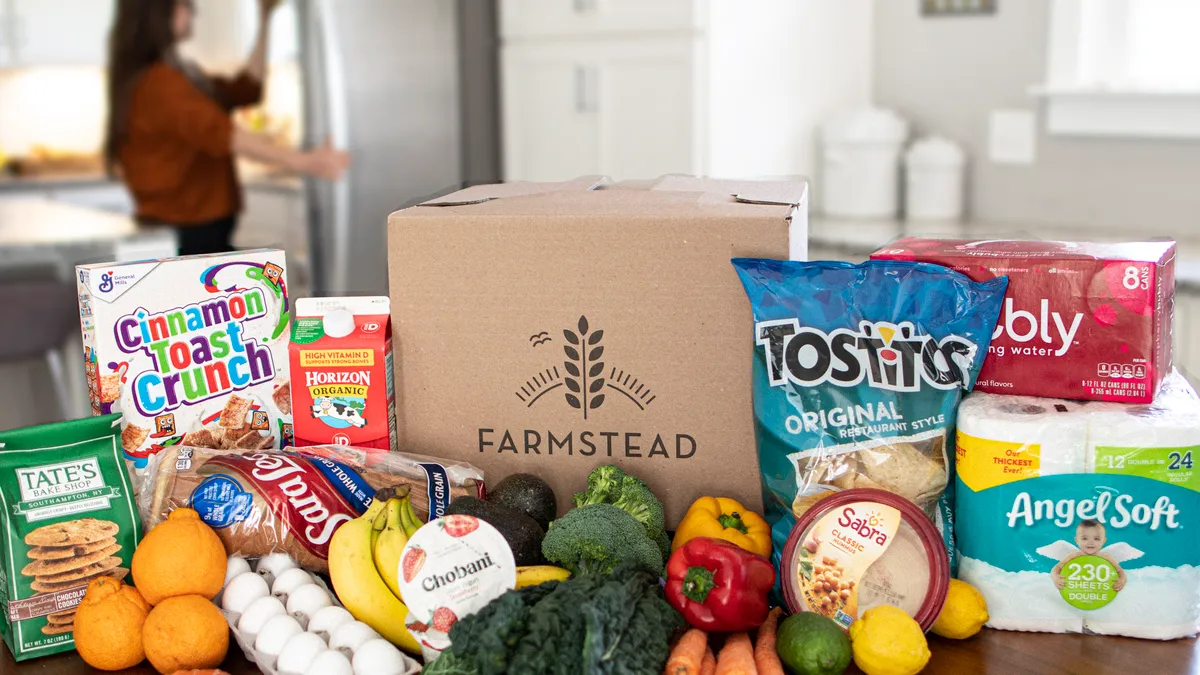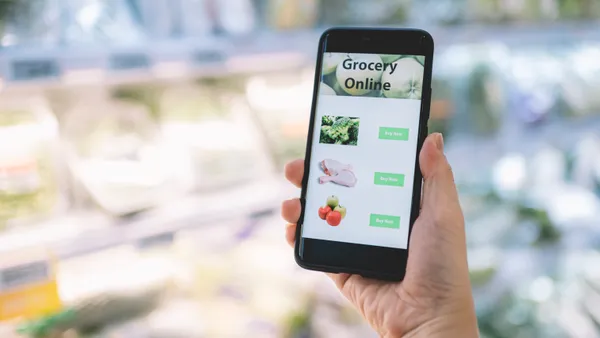Dive Brief:
- Online grocer Farmstead has stopped operating in four markets it expanded to over the past two years, according to an email from co-founder and CEO Pradeep Elankumaran. It now operates only in San Francisco, its home market.
- As a result of stopping service in the Chicago area, Miami, and Charlotte and Raleigh-Durham, North Carolina, markets last month, Farmstead laid off 22% of its total operations staff. Elankumaran positioned the pullback, which Business Insider first reported, as temporary, noting that its business is on “pause” and that it has kept its leases in the four markets.
- Elankumaran said the move is the result of an uncertain economic environment and that the grocery delivery company hopes to resume operations in the four markets sometime “in the next few quarters.”
Dive Insight:
It appears Farmstead has fallen victim to the same headwinds that have bogged down other previously high-flying e-commerce players like Gopuff and Instacart.
Online grocery sales growth has slowed this year compared to the previous two years amid rising inflation and a return to in-store shopping by consumers. Research also shows that most consumers still prefer store pickup service over delivery.
With talk of a possible recession looming, Farmstead chose to pull back in order to remain “capital efficient,” Elankumaran said.
“It's unclear what will happen next with the economy. We are a startup, and have to be prudent in moments of economic uncertainty,” he noted.
Founded in San Francisco in 2016, Farmstead expanded to Charlotte, North Carolina, in late 2020 and in less than a year expanded to nearby Raleigh-Durham, then to Miami. In February, the company began delivering in the Chicago area and had cities like Nashville, Tennessee, and Austin, Texas, in its sights.
Operating as a pure-play e-grocer has always been difficult, given high costs and the challenge of competing against established chains. Farmstead has tried to stand out by offering a curated selection of competitively priced goods and by offering innovative tools like automatic reordering. To keep costs down, the company uses artificial intelligence to optimize ordering and delivers orders in batches.
Farmstead also uses picking and delivery routing technology it developed, and which it has tried to sell to other grocers, operating a two-sided model similar to Boxed.
The startup got off to a promising start in its push beyond San Francisco, but ultimately failed to build enough momentum to keep those new markets running.
“While we were growing well in every market with strong customer ratings, the vast majority of our revenue and profits still came from our established San Francisco market,” Elankumaran said.
He continued: “We're focusing on growth and driving further profitability in [San Francisco] for the next few quarters with our core model that we have been perfecting since we first started.”











